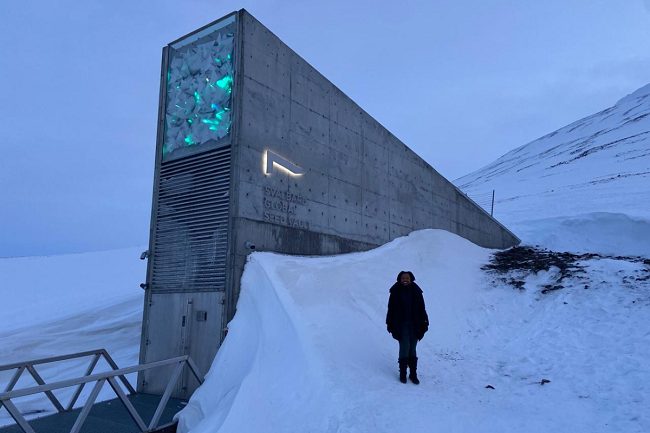In what appears to be a major step toward safeguarding Africa’s rich tree biodiversity, the Centre for International Forestry Research and World Agroforestry (CIFOR-ICRAF) has deposited 120,000 seeds from 13 native African tree species into the Svalbard Global Seed Vault. This latest deposit, which includes the iconic baobab, pushes CIFOR-ICRAF’s total contributions since 2008 to over 1.1 million seeds from 177 species.

The Svalbard Global Seed Vault, located deep within Norway’s Arctic permafrost, is the world’s most secure backup for global crop and tree diversity. For Africa, where climate change, deforestation, and land degradation threaten ecosystems and livelihoods, preserving native tree species is a crucial investment in food security, economic resilience, and environmental sustainability.
“Trees are the backbone of many of Africa’s landscapes, supporting millions of people with food, medicine, and livelihoods,” said CIFOR-ICRAF CEO, Éliane Ubalijoro, who personally delivered the seed box from the CIFOR-ICRAF genebank to the vault. “By safeguarding these seeds, we are ensuring that African communities have access to the genetic resources needed to restore degraded land, enhance biodiversity, and adapt to climate change.”
Why this matters to Africa
- Food and nutrition security: The African baobab, often called the “Tree of Life,” is a key component of local diets, providing nutrient-rich fruit, leaves, and seeds. Other species in the deposit play vital roles in traditional diets and agroforestry systems.
- Climate resilience and reforestation: Many of the deposited species contribute to carbon sequestration, soil restoration, and sustainable land management, helping to combat desertification and land degradation across Africa.
- Livelihoods and economic benefits: Native trees underpin sustainable industries, from medicinal plants to timber and non-timber forest products, supporting rural economies.
With an estimated 15 billion trees lost globally each year and 38% of the world’s tree species at risk of extinction, CIFOR-ICRAF advocates for an approach that prioritises native species over fast-growing exotic trees. Its “Right Tree in the Right Place for the Right Purpose” strategy ensures that Africa’s forests and farmlands remain productive, diverse, and resilient for future generations.
Since its first deposit in 2008, CIFOR-ICRAF has been at the forefront of tree conservation efforts, working with African researchers, farmers, and policymakers to integrate native species into restoration initiatives.
A call to action
With increasing global recognition of the importance of trees in tackling climate change and food insecurity, CIFOR-ICRAF urges African governments, research institutions, and funding partners to support the conservation of native species. By investing in seed banks, agroforestry, and reforestation programmes, Africa can build more resilient landscapes that sustain both people and nature.
